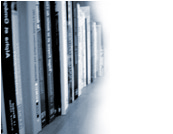 |
|||||||||||||||
|
|||||||||||||||
|
|||||||||||||||
| Aboriginal Women, Water and Health:
Reflections from Eleven First Nations,
Inuit, and Métis Grandmothers |
|
||||||||||||||
|
Kim Anderson Introduction The Atlantic Centre of Excellence for Women's Health (ACEWH) and Prairie Women's Health Centre of Excellence (PWHCE) have recently been collaborating on research concerning Aboriginal women and water. After conducting a literature review about Aboriginal women and water and a review of data for a boil water advisory mapping project, the Centres determined that cultural and community-based knowledge would add a valuable component to their exploration of Aboriginal women, water and health. They commissioned researcher Kim Anderson to interview Aboriginal Grandmothers1 and write a paper on the subject. Dr. Anderson interviewed Grandmothers from BC, Alberta, Saskatchewan, Ontario and Nunavut while Libby Dean (working with ACEWH) and Roberta Stout of PWHCE contributed to the research by conducting interviews with women in Labrador and Alberta. Executive Directors Barbara Clow (ACEWH) and Margaret Haworth-Brockman (PWHCE) served as co-principal investigators on the project, providing guidance and leadership. Methodology This project involved interviewing a small number of First Nations, Inuit and Métis Grandmothers from across Canada.
Participants for the project were chosen from different regions of Canada and different Indigenous nations so as to explore the diversity as well as the commonalities among Aboriginal women and their relationships with water. We were, thus, able to capture the reflections of women who were raised with different types of water, including oceans, prairie creeks and rivers, the Great Lakes and glaciers. The cultures that these women come from are as diverse as the land they are based in, but there are common approaches that allow for the telling of a collective story and the possibility of collective action on a (Canadian) national scale. 1The term "Grandmothers" is used here to denote senior Aboriginal women who have taken up a degree of leadership and responsibility in their communities. I have capitalized "Grandmother" to indicate that the term is used to signify a position of authority or responsibility, rather than a biological actuality or role as grandparent to children within one's bloodline. Back to top of page |
|||||||||||||||
This website is copyrighted by the
Prairie Women's Health Centre of Excellence, © 1998-2011.
Website design: Pamela Chalmers E-mail: pwhce@uwinnipeg.ca. |
|||||||||||||||
 |
|||||||||||||||


 Full
Report ENG (.pdf) 1.0 MB
Full
Report ENG (.pdf) 1.0 MB